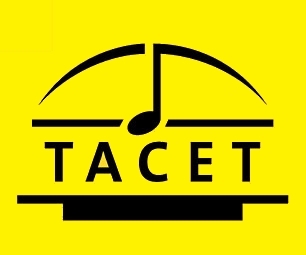This is subtitled "Captivating violin pieces" and just about sums up the disc, which is essentially a collection of salon music (but only for the very gifted). The opening number (Tchaikovsky's Melody Op.42/3) gives the listener a fair sampler of the entire disc - easy, relaxed and un-mannered virtuosity from Daniel Gaede who is accompanied sensitively by Xuesu Liu. Following on from this is Charles-Auguste de Beriot's Scene de Ballett, a rondo/fantasy which allows Gaede to be expressive and brilliant by turns.
Ysaÿe's Reve d'enfant, Elgar's Salut d'Amour and Massenet's Méditation from Thaïs then provide a Gaede with a welcome easing of the technical difficulty. We are lucky that he wears these pieces with grace and style, without falling into sentimentality (Liu occasionally feels a little earth-bound here). Schtchredin's In the Style of Albeniz provides a semi-rude awakening from this blissful state but Gaede and Liu are fully awake to playful possibilities of this music.
We are then returned to relative tranquillity with Richard Drigo's "Valse Bluette" - Air de Ballet, Schubert's Ave Maria, Moskowski's Spanish Dance No.2 Op.12 and Schumann's Abendlied Op.85/12 before Kriesler's Concerto in C major (which, to modern ears unbelievably, is dubbed "in the style of Vivaldi") is given by Gaede, accompanied by the Polnische Kammerphilharmonie under Wojciech Rajski. This piece is played admirably enough but will now not be more than a curiosity for most listeners. As Tacet found an orchestra for this piece, it is a shame that they were not employed for the Massenet.
Liu then returns to the piano and together with Gaede provide delightful interpretations of Joseph Hellmesberger Jnr.'s Romanze (with three violin pupils of Gaede, who evidently has coached them well in the style he expects) and lastly Manuel Maria Ponce's Estrellita (arr. Heifitz) is played with pleasing allure.
Overall, Gaede plays with a similar style and level of musicianship as Kreisler (and what could be higher praise than that?) which is not altogether surprising as he succeeded where Kreisler failed, in that Gaede used to a Konzertmeister of the Vienna Philharmonic - their loss is our gain in this case…
The recording is very much one of two distinct parts; the orchestral part is very well balanced but the piano part has far too prominent rears for my (and suspect many others) taste which makes the acoustic sound unpleasantly like a swimming pool (a bit of an exaggeration but the stereo layer is definitely preferable, which is an achievement of sorts!)
Recommended, especially for stereophiles…
John Broggio<< retourner
